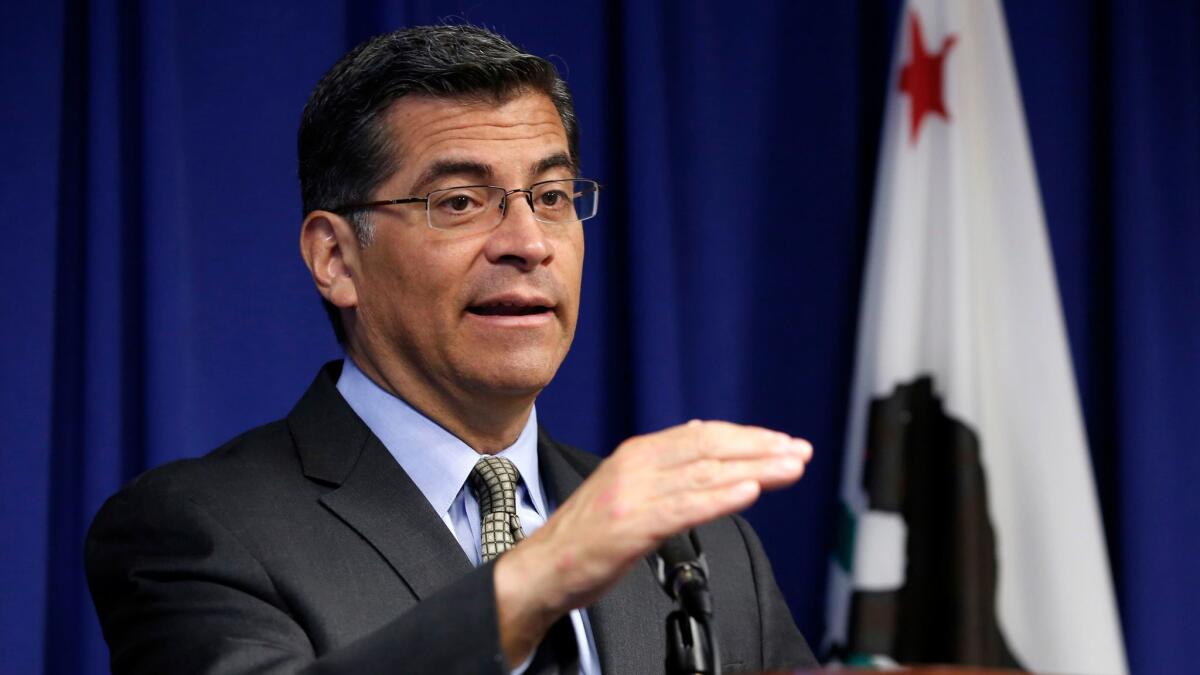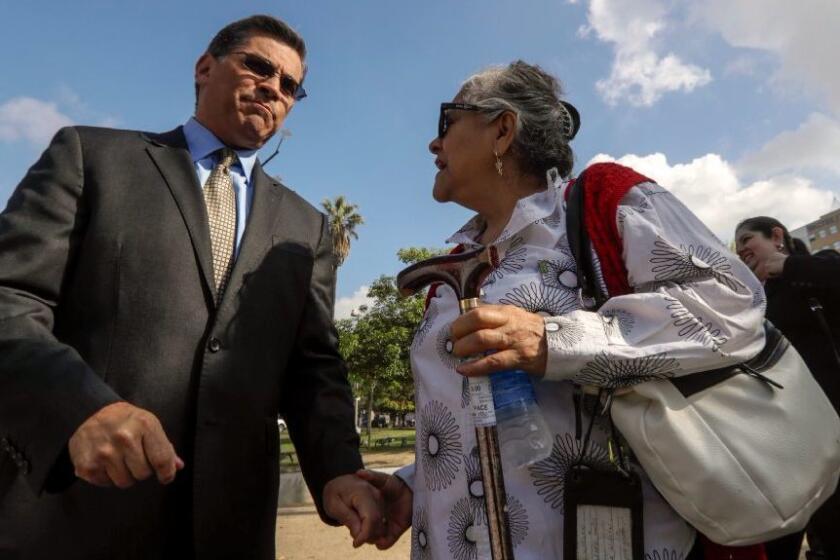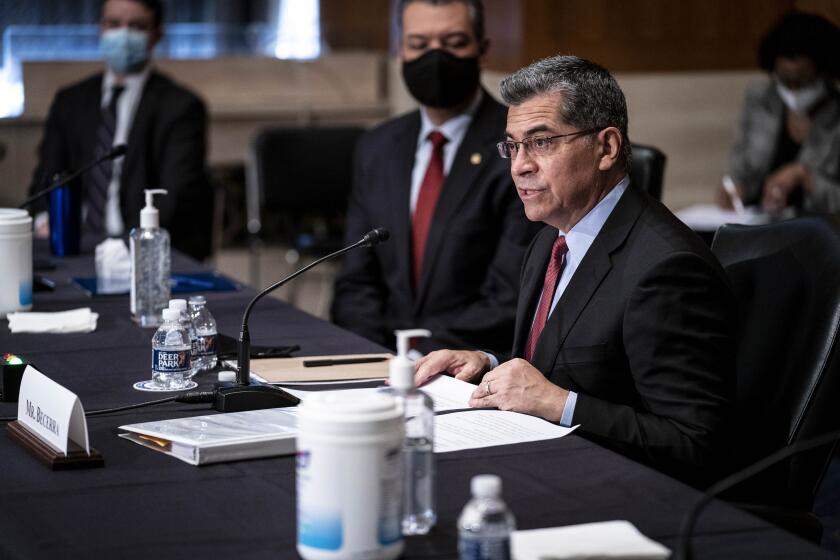Curacao stores reach settlement in lawsuit alleging it defrauded low-income people

The Curacao retail chain has agreed to pay $10.5 million to partially settle a lawsuit brought by the California attorney general’s office alleging that the company exploited its customer base — largely Spanish-speaking immigrants — through misleading advertising, unlawful fees, illegal debt collection and abuses of the small-claims court system.
State lawyers filed suit in 2017 against Curacao’s parent company, Adir International, and its chief executive, Ron Azarkman, charging that the stores had for years targeted low-income Latinos who lacked access to traditional sources of credit.
Curacao swindled these customers, state lawyers alleged, by refusing to sell goods at advertised prices and tacking on warranties, accessories, installation services, often without the customer’s knowledge or consent.
When customers fell behind on payments, Curacao sent debt collectors to “harass” not just them, the state’s lawsuit says, but their relatives and employers as well. Customers have been threatened with litigation, arrest and the seizure of their homes, according to the lawsuit.
Curacao frequently sued over delinquent debts, filing 250 to 400 small-claims actions each month, the lawsuit says. Because the company previously used an unregistered process server who fabricated proof of service, some customers learned of default judgments entered against them without having a chance to defend themselves in court, state lawyers charged.
Curacao, a Southern California electronics retailer that caters to Latinos, was accused of several unlawful business practices in a civil lawsuit filed by state Atty.
The settlement, announced Tuesday, will set aside $10 million in debt relief for Curacao customers.
The company will also pay $500,000 in civil penalties and has agreed to display a customer bill of rights in stores, sell items at advertised prices, disclose all contract terms to customers, limit debt collection to one phone call per day to delinquent customers and use a licensed process server that uses a GPS tracking system.
Curacao also pledged to hire a compliance monitor and submit annual reports to the attorney general’s office. The settlement does not resolve allegations that Curacao engaged in illegal payment protection plans and insurance practices.
“Curacao claimed to be part of Southern California’s Latino community,” Atty. Gen. Xavier Becerra said in a statement. “It then proceeded to defraud low-income individuals, Spanish speakers and immigrants with little or no experience entering into long-term financing contracts.”
Ariela Nerubay, a representative for Curacao, said the company was “extremely pleased” to announce the settlement, which includes no admission of liability, and “that we can finally put this issue behind us so that we can continue focusing on serving the community that we have always stood behind.”
Azarkman, the chain’s chief executive, said in a declaration in 2017 that Curacao, which he founded with his brother in downtown Los Angeles in 1983, was “not a multi-billion dollar company with stores that ‘target’ consumers.”
He defended his company’s track record with low-income customers, saying its foundation furnishes poor families with household goods, funds scholarships and puts on an annual community event for Latino children in neighborhoods with Curacao stores.
“I take great pride in the fact that we have helped hundreds of thousands of customers establish and build credit and get access to products that they would not have been able to afford otherwise,” Azarkman said in the declaration.
State lawyers, however, filed in court a number of declarations from Curacao customers who described being sold faulty goods, saddled with unexpected fees and subjected to court judgments without proper notice.
Carmen Gochez said she went to a Curacao on Olympic Boulevard in Los Angeles to purchase a laptop for her grandson. She settled on a Gateway laptop, but a salesman tried to persuade her to also buy accessories and software she didn’t want, Gochez said in a declaration.
When Gochez picked up the laptop the next day, the bag was “full of items that I told [the salesman] I did not want to buy,” she said.
Republicans and Democrats squared off at Becerra’s pivotal confirmation hearing for Health secretary before the Senate Finance Committee.
Gochez looked at the contract she’d signed and learned she was on the hook not just for the laptop, which cost $379.95; she’d also agreed to pay for accessories, an external hard drive, a three-year warranty and various installation fees, the declaration says. The total cost, including financing: $1,614.58.
Carlos Mencos said he fell behind on payments for electronics he’d bought at the Curacao on Olympic Boulevard. A long haul truck driver, Mencos was driving to Texas when he got a call from a collections representative who said Curacao had won a judgment against him.
A deputy sheriff was en route to his workplace to serve him with wage garnishment papers, the representative said, according to Mencos’ declaration.
Mencos said his boss gave him a $1,000 paycheck advance to cover the $1,138.75 judgment. When an investigator with the Department of Consumer and Business Affairs showed Mencos his court file a year later, it said he’d been personally served in Los Angeles on Dec. 11, 2014.
This couldn’t be possible, Mencos said in the declaration, because on that day, he was driving from Texas to West Virginia. He filed in court a work log showing he’d left Texas on Dec. 8 and arrived in West Virginia on Dec. 16.
More to Read
Sign up for Essential California
The most important California stories and recommendations in your inbox every morning.
You may occasionally receive promotional content from the Los Angeles Times.












